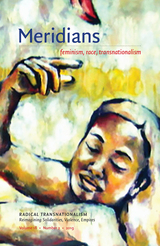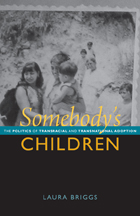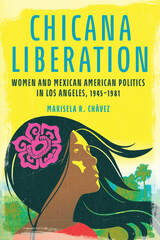
Contributors. Elisabeth Armstrong, Maile Arvin, Maylei Blackwell, Laura Briggs, Ginetta E. B. Candelario, Ching-In Chen, Tara Daly, Nathan H. Dize, Deema Kaedbey, Nancy Kang, Rosamond S. King, Karen J. Leong, Brooke Lober, Neda Maghbouleh, Melissa A. Milkie, Nadine Naber, Laila Omar, Ito Peng, Robyn C. Spencer, Stanlie James, Evelyne Trouillot, Denisse D. Velázquez, Mandira Venkat, Judy Tzu-Chun Wu

The dramatic expansion of transracial and transnational adoption since the 1950s, Briggs argues, was the result of specific and profound political and social changes, including the large-scale removal of Native children from their parents, the condemnation of single African American mothers in the context of the civil rights struggle, and the largely invented "crack babies" scare that inaugurated the dramatic withdrawal of benefits to poor mothers in the United States. In Guatemala, El Salvador, and Argentina, governments disappeared children during the Cold War and then imposed neoliberal economic regimes with U.S. support, making the circulation of children across national borders easy and often profitable. Concluding with an assessment of present-day controversies surrounding gay and lesbian adoptions and the struggles of immigrants fearful of losing their children to foster care, Briggs challenges celebratory or otherwise simplistic accounts of transracial and transnational adoption by revealing some of their unacknowledged causes and costs.
READERS
Browse our collection.
PUBLISHERS
See BiblioVault's publisher services.
STUDENT SERVICES
Files for college accessibility offices.
UChicago Accessibility Resources
home | accessibility | search | about | contact us
BiblioVault ® 2001 - 2024
The University of Chicago Press









